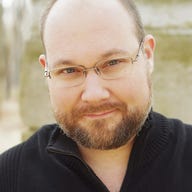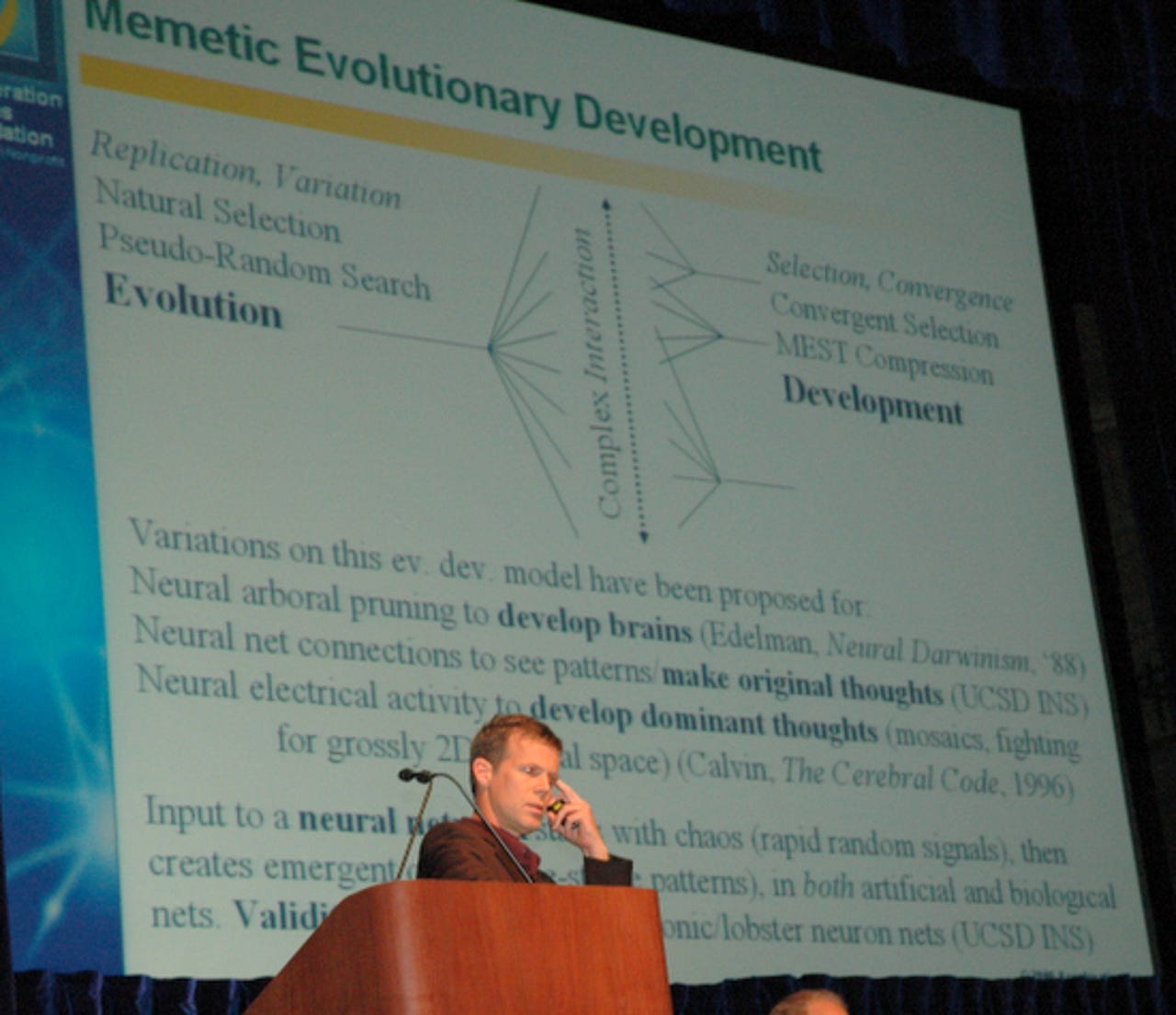Image Gallery: Singularity, the rapture of nerds?


John Smart, president of the Accelerating Change Foundation, provides a historical overview of accelerating change. He predicts that human-level machine intelligence will appear around 2060.
Eliezer Yudkowsky of the Singularity Institute for Artificial Intelligence doesn't believe that human level AI can be predicted, even if know how to build real AI, how much work is involved and which organization and people are doing? it. "We have to be careful not to mistake our ignorance for knoweledge about it."
Douglas Hostader uses his own cartoons to illustrate his points about Kurzweil's Singularity book, which he said is marred by blurring with too much science fiction, calling it "wild beyond any speculation I am willing to accept."
Douglas Hofstader, professor of Cognitive Science and Computer Science Adjunct Professor of History and Philosophy of Science, Philosophy, Comparative Literature, and Psychology at the University of Indiana and the author of Godel, Escher, Bach: An Eternal Golden Braid, doesn't buy into the whole Singularity vision.
K. Eric Drexler, Max More, Christine Petersen, John Smart, Eliezer Yudkowsky, Peter Thiel and Steve Jurvetson.
Cory Doctorow poses the question, Singularity or Dark Age? -- and explains how the copyright laws are impeding technological and human progress.
Ray Kurzweil signs copies of his Singularity tome, The Singularity Is Near: When Humans Transcend Biology.
Tyler Emerson, executive director of the Singularity Institute for Artificial Intelligence, a research and public interest institute.
Douglas Hofstader, professor of Cognitive Science and Computer Science Adjunct Professor of History and Philosophy of Science, Philosophy, Comparative Literature, and Psychology at the University of Indiana and the author of G?del, Escher, Bach: An Eternal Golden Braid, doesn't buy into the whole Singularity vision.
Stanford undergraduate students who help put on the Singularity Summit.
Douglas Hostader uses his own cartoons to illustrate his points about Kurzweil's Singularity book, which he said is marred by blurring with too much science fiction, calling it "wild beyond any speculation I am willing to accept."
Ray Kurzweil believes that his vision for Singularity is likely will have soft landing. See Singularity: Technology, spirituality and the close box.
Sebastian Thrun of the Stanford AI program predicts that autonomous cars will comprise 50 percent of cars on the highways by 2030.
The Singularity Summit panel: Ray Kurzweil, Douglas Hofstader, Nick Bostrom, Sebastian Thrun, Cory Doctorow, K. Eric Drexler, Max More, Christine Petersen, John Smart, Eliezer Yudkowsky, Peter Thiel and Steve Jurvetson.
Peter Thiel, president of Clarium Capital Management and former chairman and CEO of PayPal.
Douglas Hostader uses his own cartoons to illustrate his points about Kurzweil's Singularity book, which he said is marred by blurring with too much science fiction, calling it "wild beyond any speculation I am willing to accept."
Ray Kurzweil, Douglas Hofstader, Nick Bostrom, Sebastian Thrun.
Douglas Hostader uses his own cartoons to illustrate his points about Kurzweil's Singularity book, which he said is marred by blurring with too much science fiction, calling it "wild beyond any speculation I am willing to accept."
K. Eric Drexler pioneered the study of nanotechnology, and wrote Engines of Creation: The Coming Era of Nanotechnology.
Ray Kurzweil believes that his vision for Singularity is likely will have soft landing.
Sebastian Thrun of the Stanford AI program predicts that autonomous cars will comprise 50 percent of cars on the highways by 2030.
Douglas Hostader uses his own cartoons to illustrate his points about Kurzweil's Singularity book, which he said is marred by blurring with too much science fiction, calling it "wild beyond any speculation I am willing to accept."
Douglas Hostader uses his own cartoons to illustrate his points about Kurzweil's Singularity book, which he said is marred by blurring with too much science fiction, calling it "wild beyond any speculation I am willing to accept."